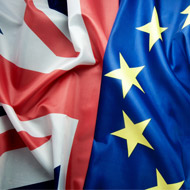
Government urged to maintain a close relationship with EU
The UK’s biosecurity could be compromised after Brexit if it loses access to vital EU alerts on animal and plant disease threats, a new report has found.
The Brexit: Plant and Animal Biosecurity report, published by the EU Energy and Environment Sub-Committee, calls on the government to seek continued participation in the EU's notification and intelligence sharing networks.
It advises that continued cooperation is critical to the UK’s ability to manage threats, ‘which could be economically and ecologically catastrophic’. The report also highlights several areas that the UK government will need to address before Brexit day, including information sharing, capacity in the veterinary sector and inspections and audits.
The report concludes that the Government will need to find a balance between the need to facilitate trade and reduce delays at the borders, and maintaining the integrity of the UK's biosecurity.
Lord Teverson, chairman of the Sub-Committee said the existing arrangements are far from perfect, but significant gaps will be created when the UK leaves the EU.
“We rely on the EU for everything from auditing plant nurseries and farms to funding our research laboratories,” he said. “The UK Government has a huge amount of work to do to replace this system in time for Brexit, and failure to do so could have an economic and environmental impact that would be felt for decades to come."
Responding to the report, a Defra spokesperson said: “The government’s ability to protect the country from pests and diseases will not be compromised once we leave the EU, nor will we stop sharing information with European or other global partners. To do so would be in nobody’s interests.
“All member countries are required to report any listed animal disease to the World Organisation for Animal Health within 24 hours of a disease being confirmed. We will also remain part of plant information-sharing networks, such as the European and Mediterranean Plant Protection Organization (EPPO).
“Within Defra, we have taken a number of steps to maintain our high biosecurity standards post-March 2019. This includes working with industry to make sure the necessary numbers of vets are in place.”
A formal response from Defra to the report is expected in due course.



 The Veterinary Medicines Directorate (VMD) is inviting applications from veterinary students to attend a one-week extramural studies (EMS) placement in July 2026.
The Veterinary Medicines Directorate (VMD) is inviting applications from veterinary students to attend a one-week extramural studies (EMS) placement in July 2026.